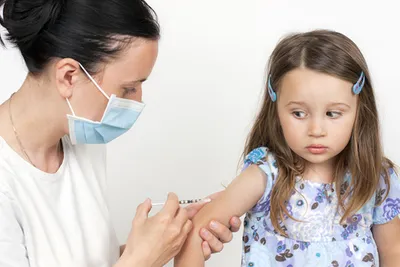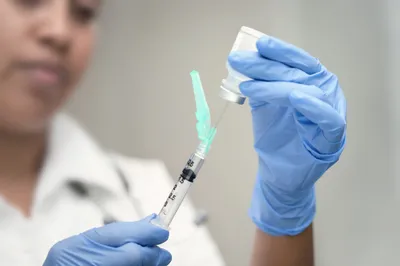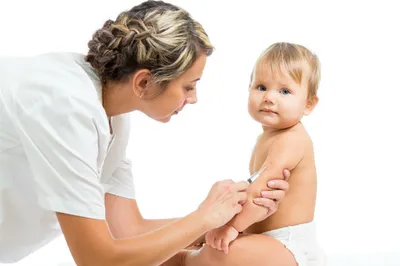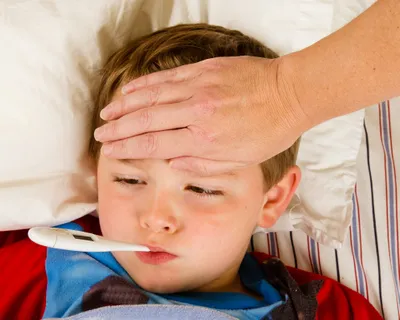It’s here just in time for the holidays: flu season. However, flu is just one of the threats floating around that can be passed from child to child, or from other sources. Luckily, there are vaccinations for most of the common and not-so-common viral infections.
Today’s school and daycare environments are potentially filled with germs that can cause a wave of illnesses that your child can be swept away in, so knowing which vaccinations to get and when to get them is key. Here are seven child vaccination tips to keep in mind heading into National Influenza Vaccination Week…
1. Use the Vaccination Schedule
Knowledge of which vaccines your child should be getting at what age is important, but without professional guidance, this can be tricky. Luckily, Centers for Disease Control and Prevention (CDC) have created a handy reference guide that you can access for free.
The first flu shots can be given at 6-months, according to the CDC guide (the first round is given in 2-doses). However, there are a number of other vaccines that protect against everything from Hepatitis B to pneumonia that you should look into before that age.
2. Keep a Secure Vaccination Record
Knowing which vaccinations your child has already received can help a health practitioner quickly determine which ones are still needed, and which to avoid doubling up on. Just as importantly, you may need to present these records in order to gain access to a daycare or school, according to VaccineInformation.org.
The source says to take extra precaution not to lose records, as tracking them down previous vaccination information can be time consuming. Some cities keep centralized registries of vaccines that have been administered by local medical professionals, it explains.
3. Be Prepared to Comfort your Child
While you should be up front about why you’re taking your child to the doctor (don’t tell them they’re going for ice cream and then show up at a clinic), it doesn’t mean your child will be any more thrilled about it. It’s important to be prepared for any tears that might come with a flu shot.
Tell them ahead of time that they’re getting a shot because it help them stay healthy, and that it’ll only sting or pinch for a brief moment before it’s all done. The CDC recommends bringing a favourite book, toy, or blanket (or all three) that can help comfort junior before and after the needle.
4. Help them Recover Quicker
If your little trooper seems a bit out of sorts following a vaccination (remember to call a doctor if there are major side effects or they are crying for hours inconsolably), you can try soaking them in a warm bath to soothe the tenderness, notes Parents.com.
They may experience a drop in appetite following a flu shot, but don’t panic. This actually means the immune response has been kicked into gear, notes the source. It’s okay to give them acetaminophen (Tylenol) for children to dull aches following the shot, but not before. “Some research suggests that it could interfere with his immune response to the vaccine,” it adds.
5. Check if You’re Covered
While most insurance plans cover routine vaccines, however it’s probably best to check with your provider before you go to the doctor’s office so you’re not presented with a shocking bill that hurts a lot more than a needle.
Those without health insurance can turn to the Vaccines for Children (VCF) program, a federal program that funds vaccines due to low income or barriers to health coverage. Your child must be under-19 years old to qualify. You can find a doctor enrolled in the program through a local VCF coordinator.
6. Weigh Potential Side Effects
Many parents are hesitant to have their doctor administer vaccines to their child because they believe the risk of side effects to be high, but HealthyChildren.org (American Academy of Pediatrics) said that these effects might be mild at worst, especially compared to the potential illness your child is being vaccinated against.
Reactions to vaccines include swelling, redness and some tenderness where the needle entered the skin, notes the source. A mild fever may also occur in some cases. “It is rare for side effects to be serious,” explains the source, adding if you notice something is seriously wrong (such as a spiked fever of more than 103-F for children under 3-months), then call a doctor immediately.
7. Remember Flu Can be Deadly for Children
If you’re still on the fence whether to get your child vaccinated, consider this warning from the CDC: influenza can be deadly for younger children. “Even healthy young children and younger adults can have severe disease or even die from influenza,” notes the source.
That being said, each year the CDC receives reports of around 100-children that have died from the flu. It doesn’t outright say whether all of these children had been previously vaccinated, but the source notes that vaccines tend to make symptoms milder if you do end up getting a virus.










